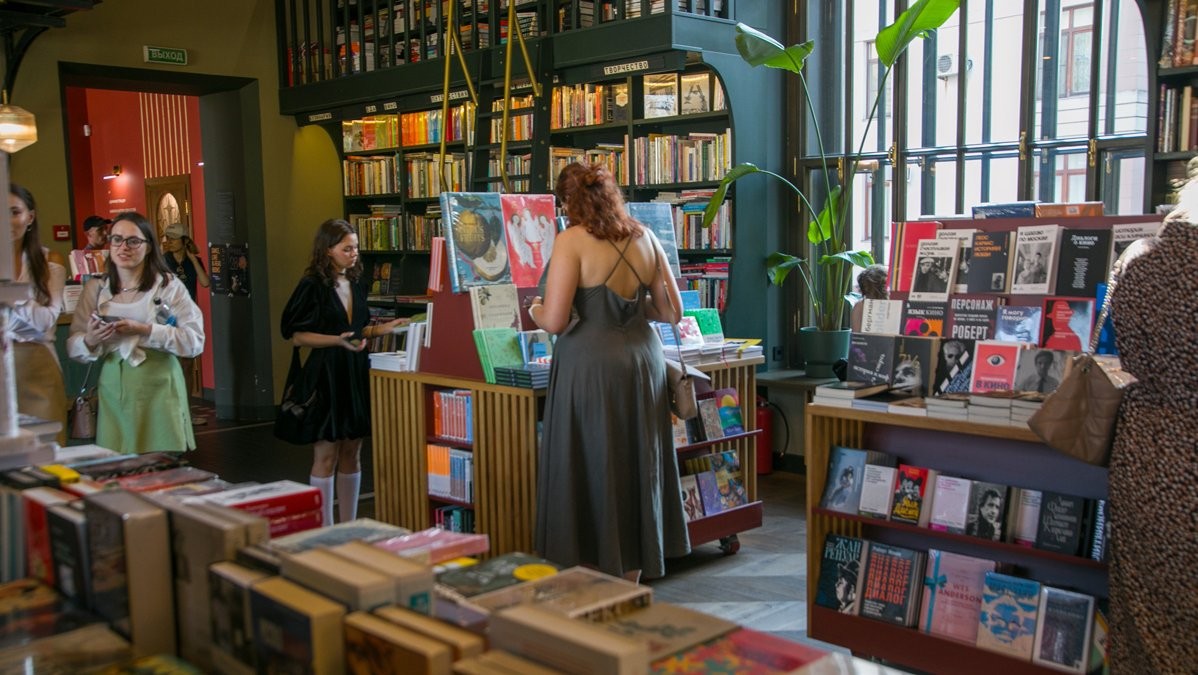Russia's publishing market during an era of censorship
Total turnover remained more or less the same, but print runs collapsed, with a 23% drop in the number of books printed compared to the first quarter of 2022. Books translated from abroad fell by 27%, with a decidedly poor average for Russian readers of 2,500 copies printed per text. Readers are looking for substitutes for banned literature, buying Russian fantasy and horror books and Chinese novels.
Moscow (AsiaNews) - Police in St Petersburg have carried out a raid on the most important independent bookshop in the northern Russian capital, Podpisnye Izdanija (‘Subscription Publishing’), to search for ‘banned’ literature based on anonymous tip-offs, leaving with a load of books to be destroyed, mainly those with ‘LGBT content’.
Earlier, the prosecutor's office had ordered a search of the Falanster bookshop in Moscow, but nothing was found to be confiscated, limiting itself to ‘suspicious’ books such as Michel Foucault's ‘Surveillance and Punishment’ and works by Hannah Arendt, Walter Benjamin and Susan Sontag.
The publishing house Individuum was banned for the first time from participating in the Non/Fiction book fair, without any explanation, and controls on other participants were tightened, forcing them to fill out forms with the titles of all the books on display before the opening.
The Piotrovsky bookshop in Moscow was reported on the basis of a tip-off for ‘discrediting the Russian armed forces’, and the authorities in the northern region of Komi announced the closure of the only regional shop selling books in the local language, due to its ‘low profitability’.
The great ‘invasion of bookshops’ began in 2022 as the ‘special military operation’ in Ukraine, although in both cases the ‘hybrid war’ had begun years earlier and now shows no sign of stopping at the borders already reached by the occupation.
However, Russian readers are also trying to resist like the Ukrainian population, without abandoning the books of ‘foreign agents’ and switching to those of Z-propagandists such as Zakhar Prilepin, the writer who went to the front and survived an assassination attempt in his homeland in 2023.
The collection ‘Rhinoceroses in the Bookshop’ was recently published by Freedom Letters, with texts partly already published in independent media, in which editor-in-chief Georgij Urušadze writes in the preface that ‘Z-literature is a memorable fiasco and the avalanche of censorship is causing a Streisand effect’, making censored books increasingly sought after.
Urušadze compares Prilepin's only bestseller of the last three years, ‘Dogs and Other Men’ (2023), which sold 70,000 copies, with the last queer novel published before the ban, ‘The Summer with the Pioneer Scarf’ by Elena Malisova and Katerina Silvanova, which sold 400,000 copies, explaining that ‘in our publishing house, we don't have an advertising department, the three horsemen of the Apocalypse are enough for us: the Ministry of Justice, the Prosecutor General's Office and the Roskomnadzor control agency’.
He recalls the sensational sales of Ivan Filippov's novels, ‘The Shadow’ and ‘The Mouse’, and the books by Dmitry Bykov, Sergei Davidov and others, all of which fell under the censorship axe after they had already conquered the publishing market.
In an article in Posle Media on ‘The Russian publishing market: in a downward spiral', analyst and activist Vladimir Kharitonov summarises the economic results of Russia's three-year war on culture, noting that total turnover has remained more or less the same, at just over billion per year, but print runs have collapsed, with 23% fewer books printed than in the first quarter of 2022.
Reprints have fallen by 28%, and books translated from abroad are down by 27%, with a decidedly poor average for Russian readers of 2,500 copies printed per title, almost all of which are sold in the capital, while prices continue to rise. Readers are looking for substitutes for the most popular and now banned literature, buying Russian fantasy and horror books, and even Chinese novels.
Books by censored authors are printed abroad and distributed clandestinely, in the manner of Soviet tamizdat (‘publishing abroad’), only with the help of electronic media, which allow more scope for ‘publishing piracy’. The only genre that seems to hold no interest for the Russian public these days is books about war, both those on historical conflicts and, above all, collections by Z-poets and voenkory, front-line correspondents who defend ‘authentic values against neo-liberalism’. The problem is that Putin's censorship does not make a clear distinction between values, and many authors manage to escape it with creativity and the specificity of a language rich in meaning, such as Russian.







.png)










